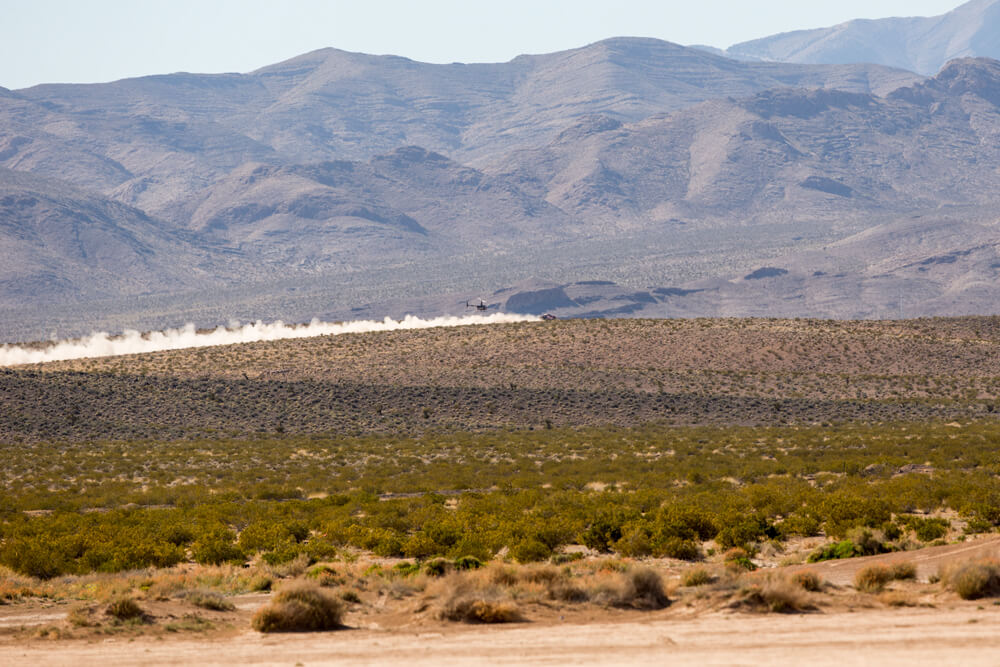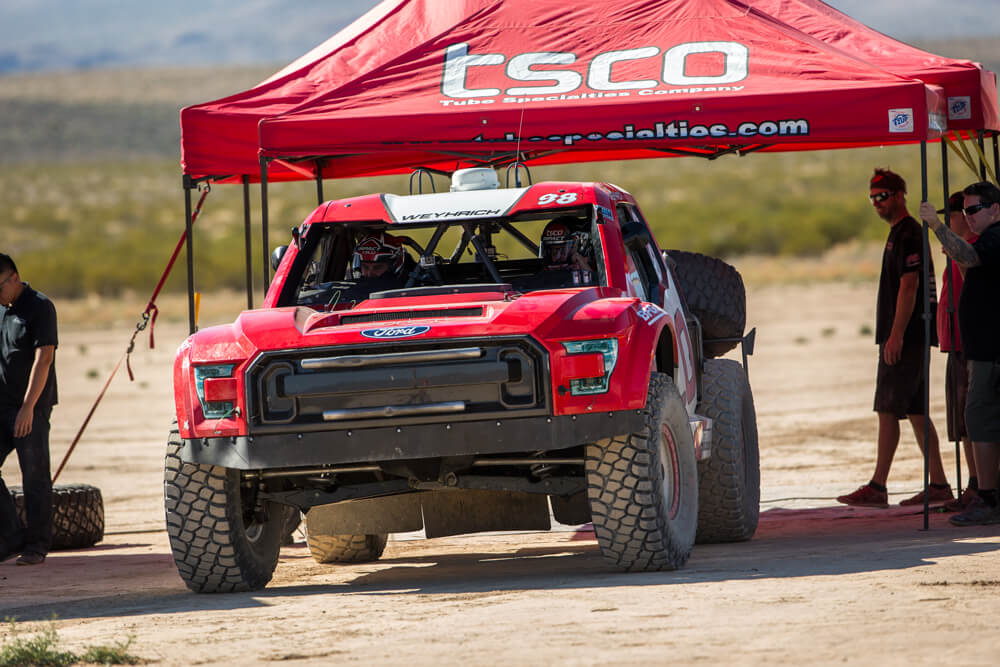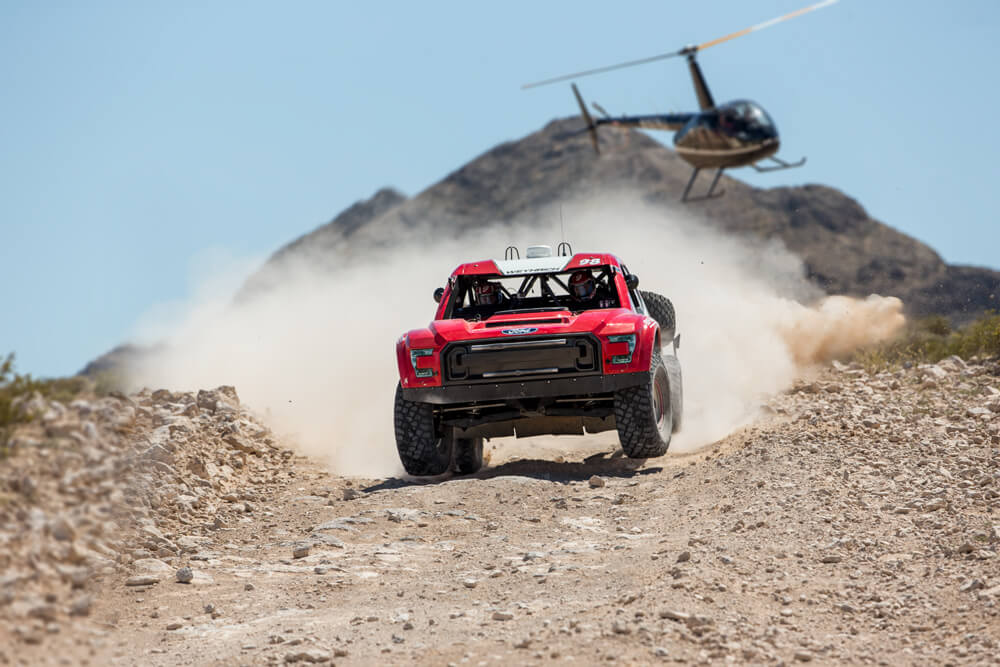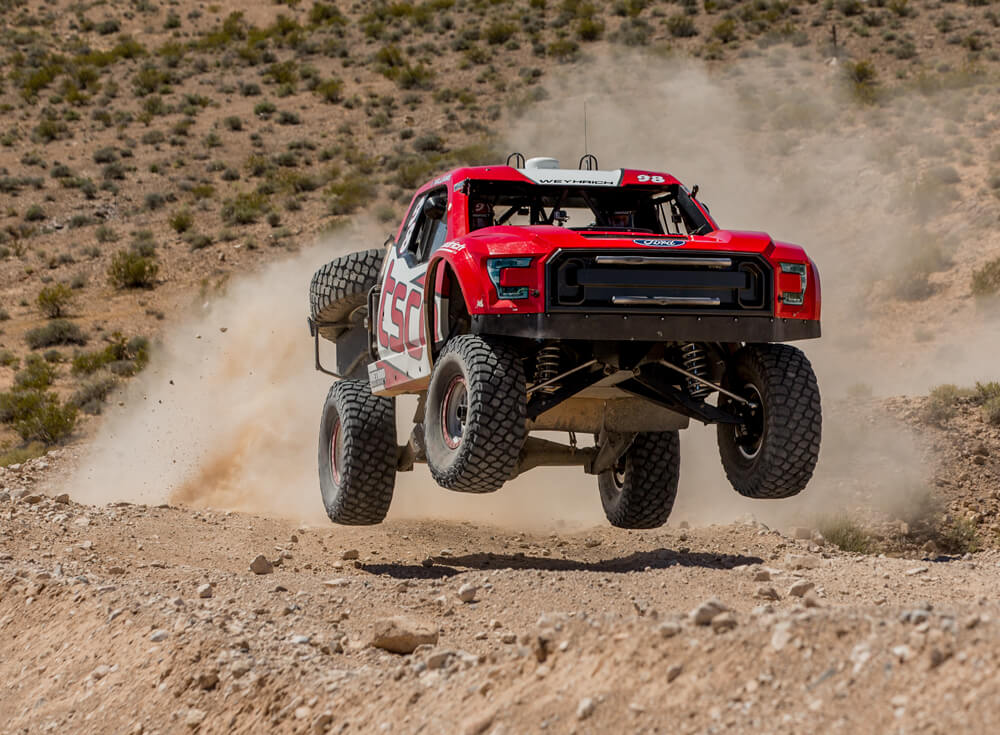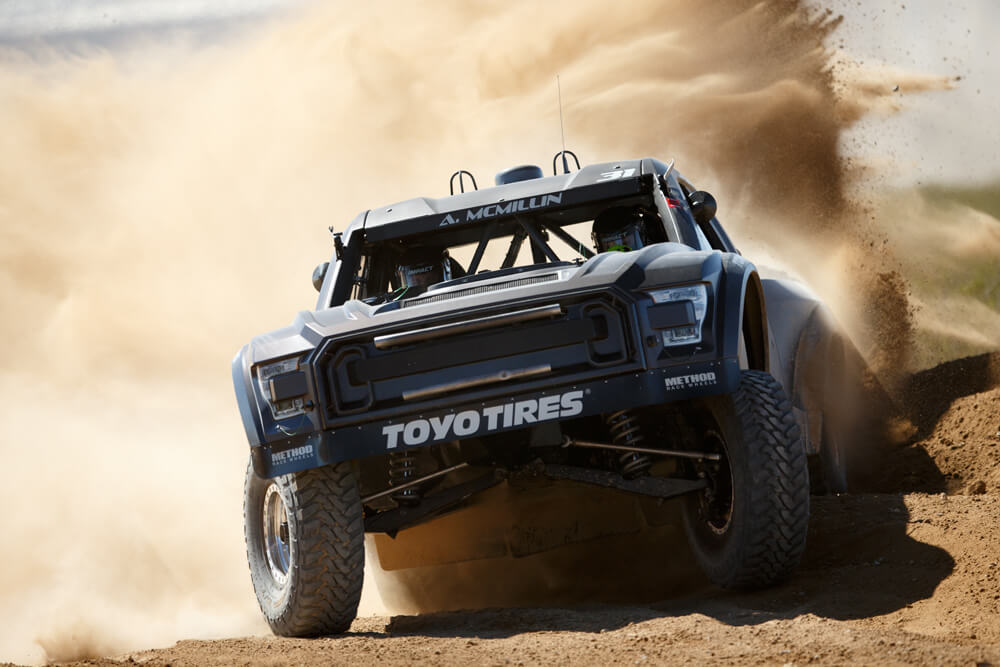Who the hell is John Vance?
Off-Road racing is serious. It takes a massive team effort just get to the finish line. To compete for the overall win, it takes another level of commitment. John Vance is one of the few team general managers who started as a fabricator and worked his way up learning each aspect of what it takes to build a championship off-road race team.
With over 20 years of hands on experience in off-road racing, John currently runs the TSCO Racing team like a well oiled machine, overseeing every aspect from prep to race day logistics to vehicle design. His passion is apparent through attention to detail, making TSCO one of the best run off-road race teams in the sport today.
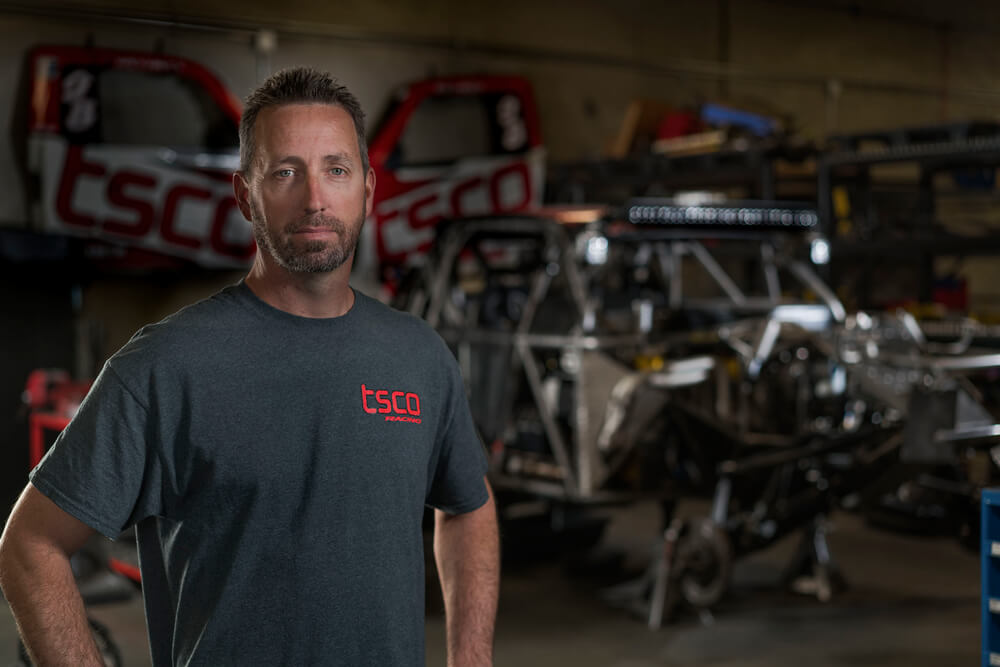
How did you get into this and what drew you into off-road racing?
I grew up drag racing with my dad. We used to spend several weekends a year out in the desert riding motorcycles and dune buggies. I love the dirt. I love the outdoors. I love being in the middle of Mexico. All my high school buddies built white fender Ranger style trucks and went beating around in the dirt and it just stuck from there. It’s all I’ve wanted to do since I was probably 18 or 19 years old.
Do you think part of that is where you grew up geographically?
I went to high school in Ramona and back then it was all dirt roads. You went hot rodding around dirt roads and jumped your trucks and stuff. It’s what you did on the weekends. It seems like that whole era, or generation, was interested in the same thing. If you weren’t a total jock, you were into motorcycles and off-road cars.
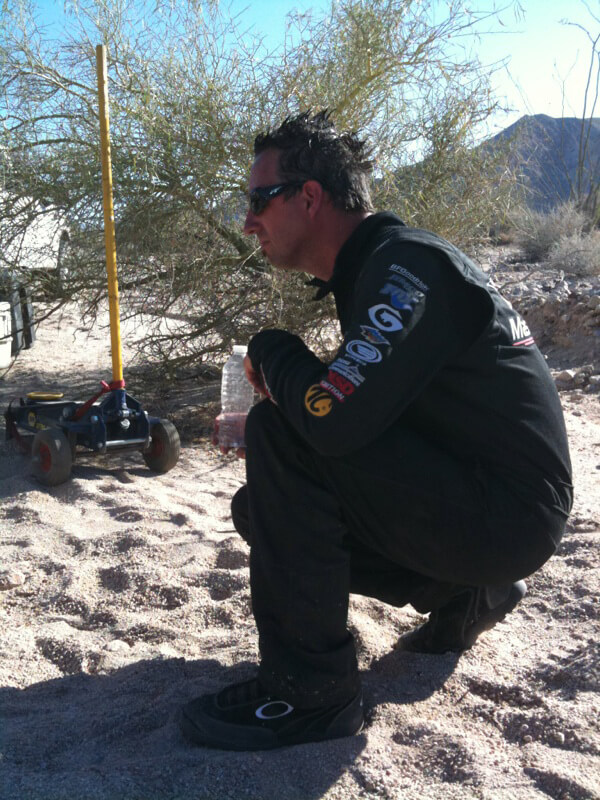
How did you originally get involved in the business side of off-road racing?
My first job in off-road racing was with Jimco 1994. I worked for Mike Julson for several years as a welder and tabber and worked under John Marking and John Cooley. Eventually, I left Jimco and went to work for Dan Gurney in the IndyCar world for couple of years. When I left there, I was at the point in my life where I wanted to get back into off-road racing but I also wanted to make more money. I went to school and learned how to use solidworks and took math classes so I could understand geometry and formulas. I think it was in 2000 when I went back to work for Jimco. I had more of the business side of things in mind and wanted to utilize it all.
A lot of people in off-road racing are self-taught. I guess it was a mix for you of a college education and self-teaching?
I think a majority of it was self-taught through the school of hard knocks. I went back to school, but didn’t really get a college education. I took specific classes that had to do directly with what I was trying to learn and understand in the industry at that particular time. A lot of it were courses to move towards getting a mechanical engineering degree. I think at some point in my life I’d still like to go get that degree.
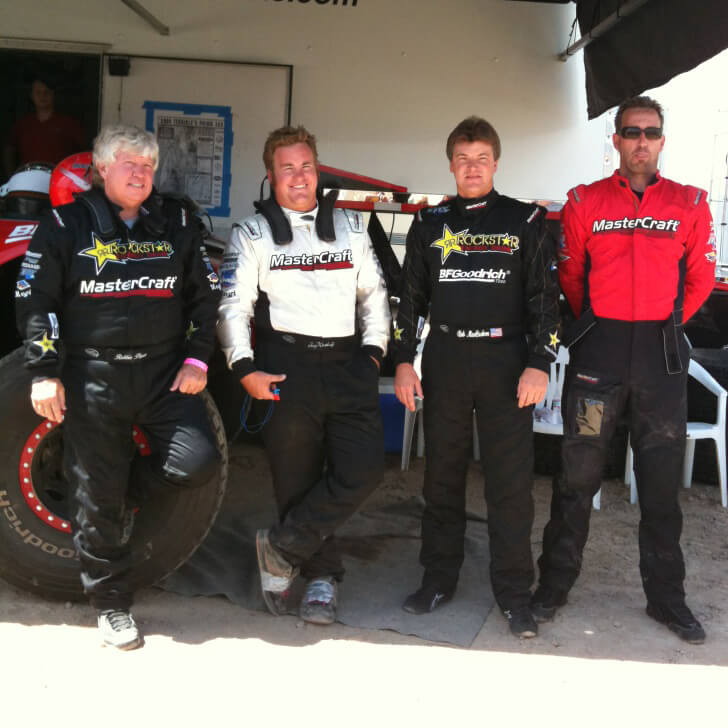
What has been one of the bigger moments or periods in your career?
Really the last four years with Mark and Gary Weyhrich and TSCO Racing. What we have built together is probably the highlight of my career. I credit my time at Jimco with a lot of my success. I credit the people that I’ve been fortunate enough to surround myself with over the years, who would be Marking and Cooley and Julson and Rob MacCachren. Then, of course, onto Robbie Pierce and now Mark and Gary Weyhrich. The last four or five years have definitely been the highlight. I’ve had a lot of highlights since getting involved in ’94, but this to me has been a pivotal portion of my life and career. I’m happy. I’m happy with what I’m doing. I’m content with what I’m doing now. Of course, that’s all temporary because I always want to improve and strive to do better.
You touched on it a little bit before, but who inspired you? Who mentored you?
I would have to say, number one, my dad. He always had me out in the garage working on his drag cars and learning the concept of what makes a race car go. In my mind, a race car is a race car, whether you race it in off-road, IndyCar, NASCAR, etc… If you have that concept of what makes them go and you apply that, then I think I could go into any industry and be somewhat successful.
Was it hard to break into off-road as a career?
For me, no. It goes back to the mentoring. I’ve always been pushed pretty hard from my dad. I think when you have your head down …you know this. When you have your head down and you’re working harder than the next guy, you don’t notice how hard it is to get involved in something. The next thing you know, you’re there and you’re like, “Wow. How did I get here?”
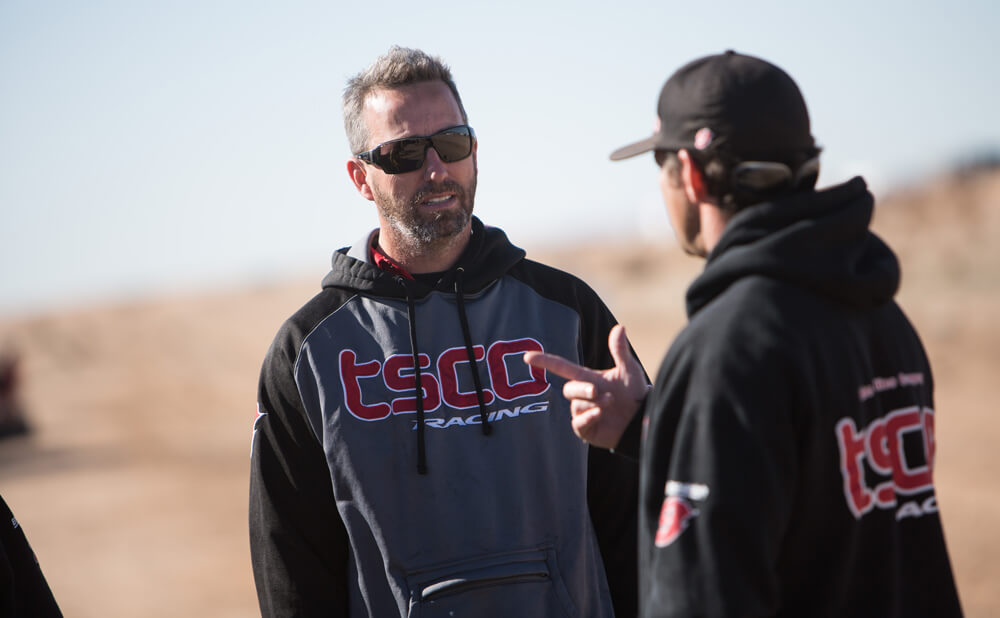
I know it’s different today. In a lot of people’s eyes, it’s a dying sport because it’s such a struggle to go off-road racing. Not only in the U.S. but now I think it’s becoming more difficult in Mexico with all the rules and regulations. I think the key is if you want to do something and you’re passionate about it, put your head down and figure out a way. The next thing you know you’ll be there and you’ll be climbing the ladder or you’ll already be at the top of the ladder and you won’t even notice that it was hard work to get there.
What’s your favorite memory of racing off-road?
Some of my best memories would be 2002. We won the Baja 1000 in Class 1. I was a part of the Jimco team with Mike Julson and Bob Lofton. That was probably the most involved that I ever was from the start of my career. From designing logistic strategies to just chasing from start to finish and being at the finish line and getting that first big Baja 1000 trophy, it was really something.
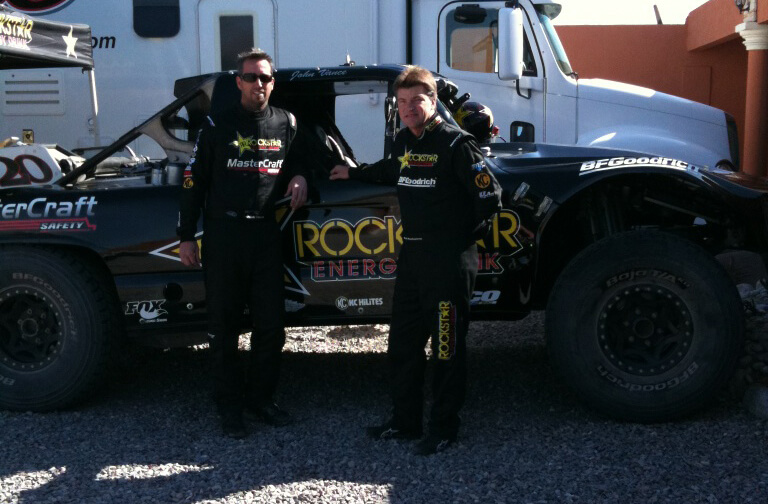
Another highlight for me was my first race with Rob MacCachren in 2009. I believe it was the Primm 300. We went out and dominated in a truck that I had built for Jimco. In my first ride with Rob, I think we went out and beat everybody overall by several minutes. That was pretty special to me. Those are probably two of the biggest highlights in the racing part of my career.
You’ve pretty much done every off-road racing event. What are your favorite events?
The Peninsula Baja 1000 is my favorite because it’s the most challenging – from every aspect. I love all the Mexico races. I mean, that’s just something … That’s where my passion lies. I love going to Mexico and riding motorcycles.
My next favorite is the Parker 425. I love what Casey’s done with it. I really enjoy The Mint 400 now that it’s come back and it seems anybody who’s anybody is at The Mint, so if you’re going to go win a race and get recognized, that’s the race that you’re going to want to go win.
You talked a little bit about your upbringing in drag racing. What inspiration have you drawn from other styles of racing and/or business?
I worked for a couple years in the IndyCar world when they were champ cars. I’ve always paid attention to the open wheel stuff. I love the design. I love the engineering that goes into it. Formula One, Daytona Prototypes, I really follow that stuff. I try to pay attention to it. They seem to be on the cutting edge all the time. Obviously, it’s a completely different world, but I think the thought that goes into the stuff is very similar to what we do. We are not a spec type industry. We can go out and essentially just dream up whatever we want to and go put it on the fixture and built it and see if it works.
I think that’s the same for the way F1 has been, and the Daytona Prototypes, and that type of thing. As far as racing and bringing ideas and engineering ideas, that would be the things that I probably take the most from. Business-wise, it’s really since I started working with Mark Weyhrich. I’ve known a lot of businessmen in the 20+ years I’ve been doing this, but nobody is as hardcore as Mark. I think in the last four years I’ve learned more from Mark in business than I’ve learned all my life.
What do you think has been your biggest challenge of your career?
I think the biggest challenge of my career has been choosing when to pull the trigger on trying to better myself. I’ve always been a pretty loyal person. Everywhere I’ve worked I’ve worked for a long, long time. Many years. Probably a little bit to my detriment is that I’m sometimes afraid of change and so I pass on some opportunity that I look back and wish I had ran with it just to see what happened.
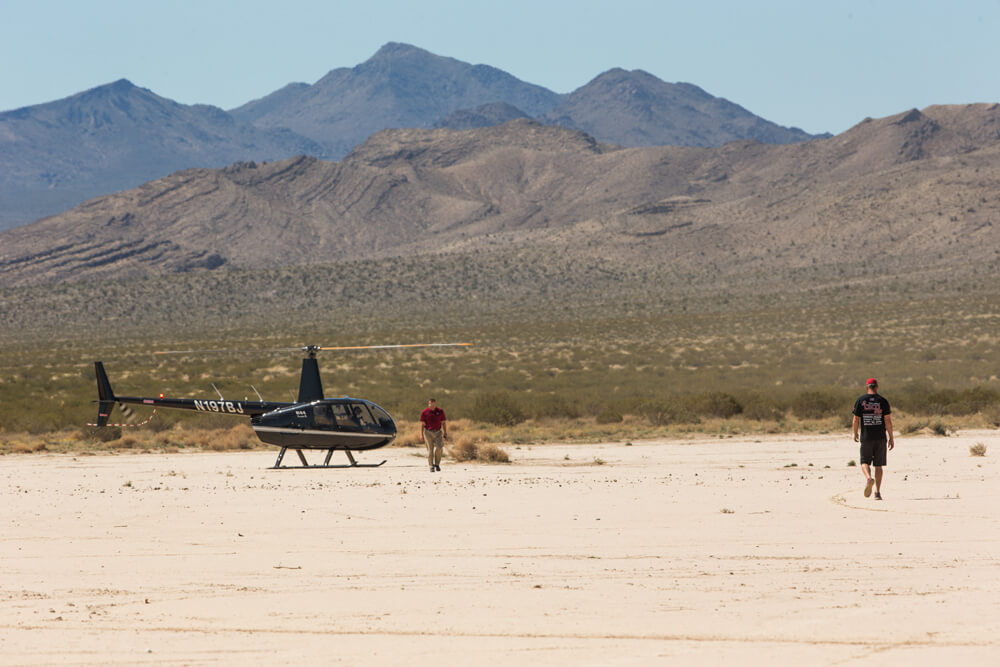
My biggest issue sometimes is just taking the bull by the horns and going for it. I tend to want to stay where I’m at and just not take too many chances out there. It’s been good for me too. I think my reputation is that I stick with it and I stick with the people that take care of me. I don’t just jump and run from shop to shop like a lot of people do out there.
You and I have always had these conversations about how much we love doing this, but you’re a family guy as well. Is it hard to work all week and then race all weekend?
The only thing that makes it difficult for me is missing the baseball games and the basketball games of my two little guys, my eight year old and nine year old. Other than that, I love being here all week. What makes it all pay off is when I get to go to the race track on the weekends and see what I’ve worked so hard to be successful at come to life. To me, I don’t have any issue working the hundred hour week and then going straight to the race track. But, it’s a little bit difficult when I’m missing out on the sports activities that my little guys are involved in..
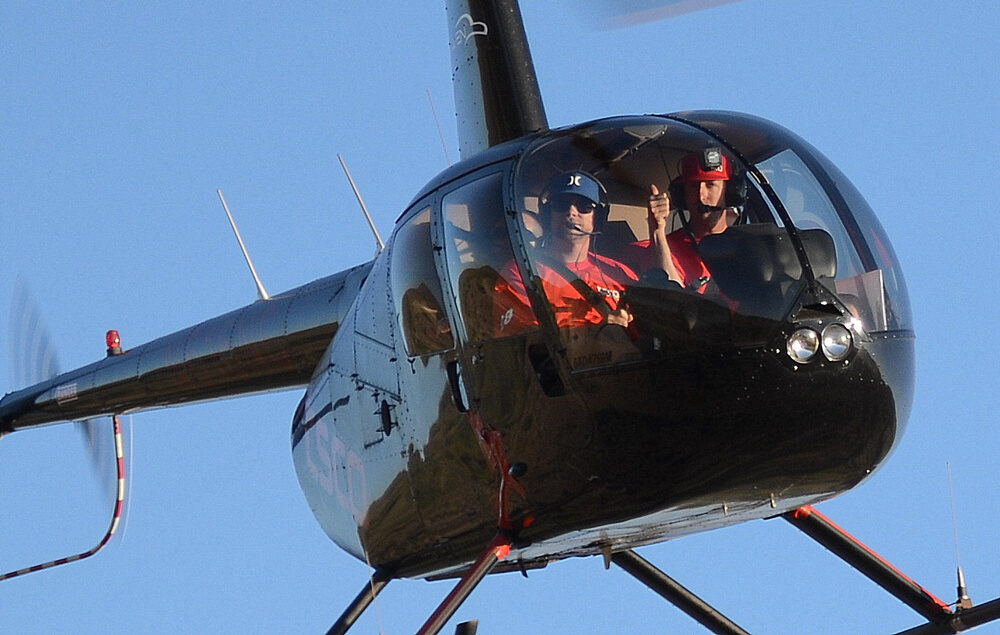
This is a big question. In talking about those hundred hour work weeks and then going to Baja, people don’t understand really why we do what we do. What do you think motivates you?
When I wake up in the morning, I wake up with no issues because I know that I need to get up and go bust ass to provide for my family. That’s number one. Number two is I constantly want to improve on what we do. I want to improve on what I do and everything that I do. Of course, I don’t think I’m out there looking for glory, but of course I want people to notice like, “Hey, this is something that the guys at TSCO have done and something that John Vance is involved in.” I’m just always striving and pushing to do something better and different than anyone else, but also not step on fingers and toes as I’m climbing that ladder.
This is a loaded question too because I already know the answer, but for everybody else, and this is going to come out after Andy goes public, what’s in store for the future of TSCO Racing and your future as well?
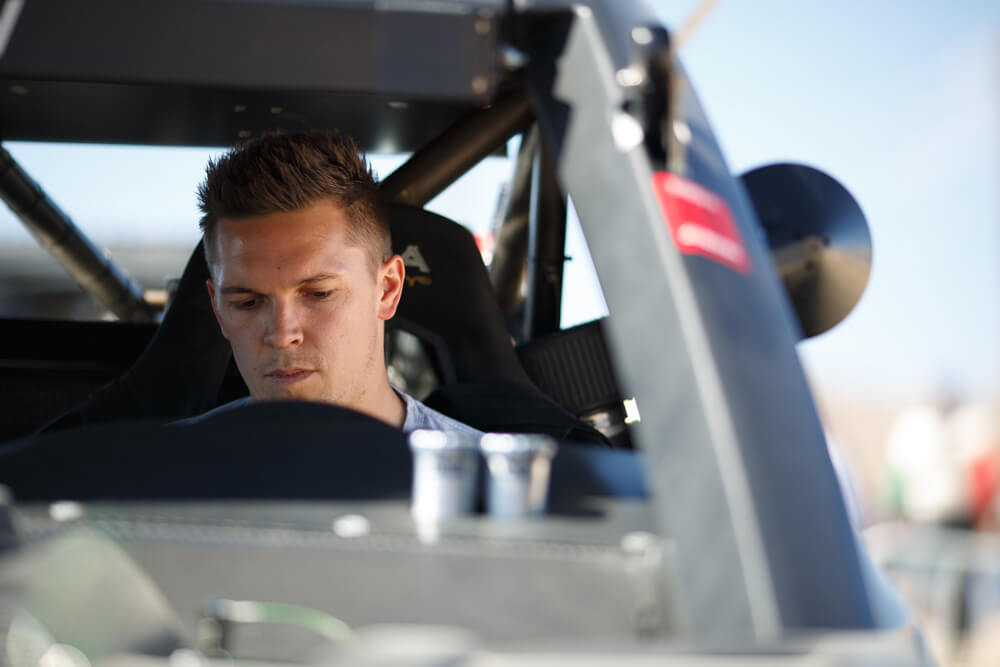
Both for my future and TSCO’s future, I feel pretty confident that it’s going to be us together. Hopefully, the future of TSCO Racing is going to be very much John Vance involved and run. With Mark’s backup and business savvy, we’re going to try to turn this into not just a support facility for Mark and Gary, but a support facility for anyone else looking for support racing.
From race track support to building brand new trucks, which we’re in process of doing, we want to get this arrive and drive program going where you simply show up at the race track and we have a truck ready for you and all you’ve got to do is write a check. We’ll give you the best opportunity out there to go out and finish a race and do as well as your skill level will allow you to do. We’ve already got guys coming in where we’ve been prepping a couple of different Class 1 cars and another Trophy Truck for different customers.
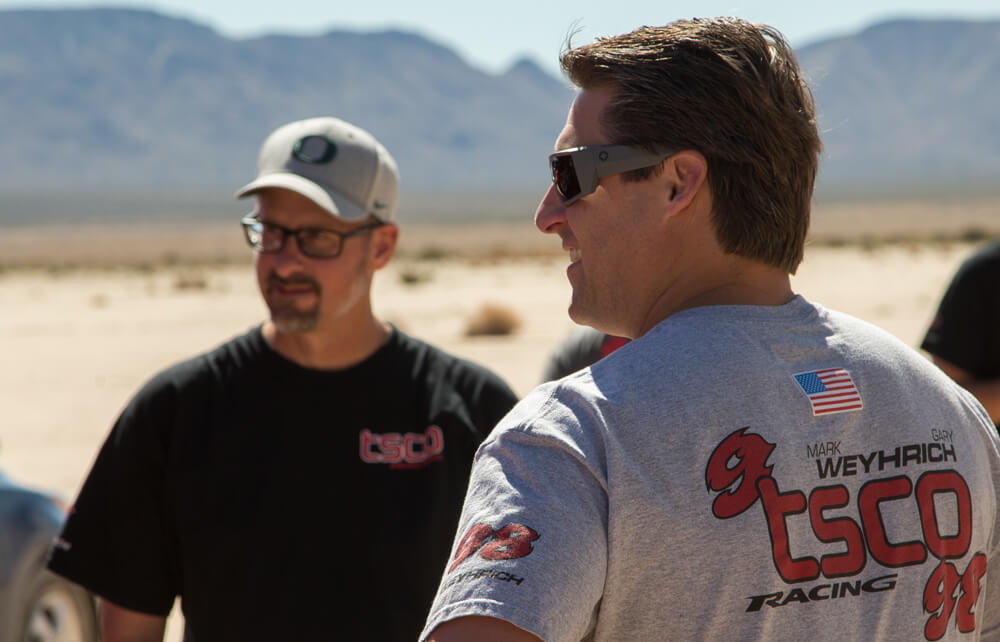
Ultimately, when Gary and Mark decide either we’re going to slow down racing completely or we’re going to stop racing completely, what does that mean for the TSCO race shop? Well, we have to figure out a way to make this place lucrative and keep everybody employed, keep the doors open, and possibly make some money at it and give these other guys out there, the Jimco’s and the Geiser’s and the Racers, a run for their money. I have no doubt we can do it with the support program that I have and with Mark’s business sense. I would tell all those other guys they need to watch out.
How do you come up with the innovations, ideas or designs? Is it just purely out of, “Hey, we need this to work better” or is it a mixture of things?
It’s a mixture of everything. My mindset is fit and function but you have to have style and aesthetics involved in everything. Everything we do has evolved from something. We know how trucks work. We know how suspension geometry works. We understand it and a lot of it comes down to, “Okay, how do we make it function the most efficient way and also look badass?” I mean, a lot of times putting holes and dimples in things aren’t really necessary, but it looks cool. It’s a compromise. You have to put a lot of style into things if you want it to sell. You can have the baddest truck out there, but if it’s ugly I don’t think anybody’s going to buy it.
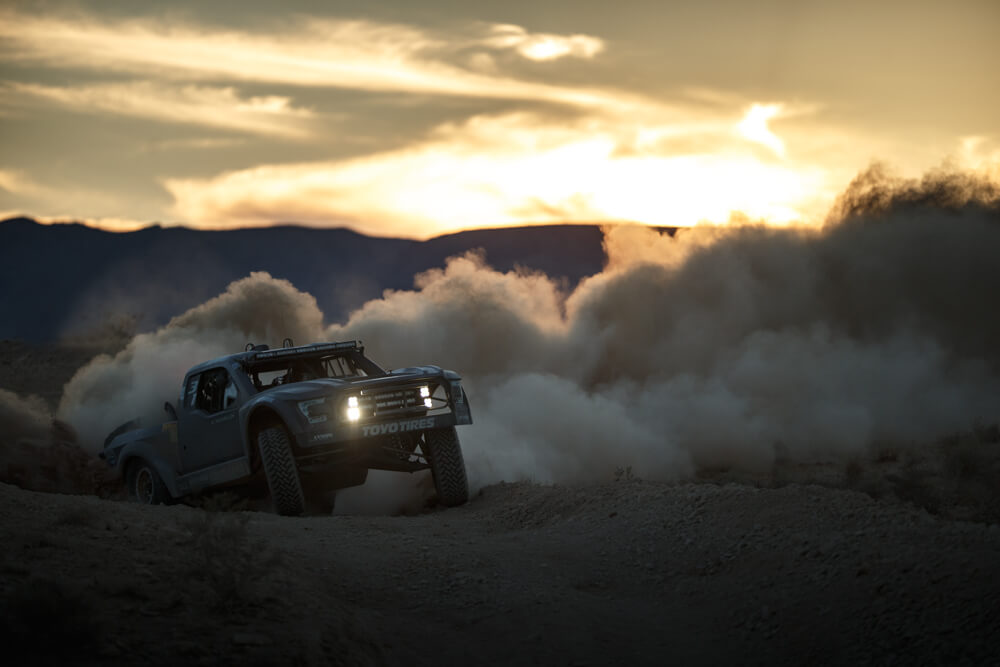
Going back a little bit, what advice would you give to young people trying to break into the off-road business?
I think number one is you need to educate yourself. The days of coming in entry level and going and sweeping the shop floors are over. It’s just not as available as it used to be when I started. If that’s what it takes, then that’s what it takes. I’ve hired kids over the years where they come in here and they think within three months they should be a chassis builder. I’m pretty sure I swept the floor and cleaned toilets for the first year and just watched. The younger generation these days need to learn how to put their head down and listen, not talk as much, and just work harder than the next guy. You know as well as I do, the skill level and the talent is out there but it comes down to work ethic and who’s willing to go the extra mile to earn that spot. It goes into anything. If you’re trying to be a professional baseball player or in the UFC or in off-road racing, just work hard and be better than the next guy.
You and I have talked about this a little bit. What do you think, in your opinion, do we need to do to grow off-road racing?
I mean, it’s tough. There’s probably so many things that I don’t even have a full grasp on like land closures, BLM restrictions, and environmental restrictions. I think what needs to happen is all of the guys like the Alumicraft’s and the Jimco’s and the Geiser’s, the guys that have made a living off of desert racing, they need to get involved and be a voice. The number one thing is for off-road to get more known. It needs to be able to be around for the next 20, 30, 40 years. It’s difficult to look in the future or even 10 years ahead and say that we’re still going to be around. There’s so many people just turning a blind eye to what’s really going on out there. I think these bigger companies need to get involved, probably financially a little bit as well.
Get educated. Everybody involved in off-road needs to get educated on what’s going on out there. Then, we can turn to the TV productions and the stuff that you guys do, which is huge. I don’t understand it. I mean, you probably know better than I do what’s going on behind the scenes with what is holding off-road racing down.
Talk a little bit about the team aspect of off-road racing.
Team is huge. We’ve discussed this before with the volunteer program that we have. That’s what it takes. We have policemen, firefighters, UPS drivers, construction workers, and all of these guys are so passionate about being involved in off-road racing that they take their vacation time and take time away from their families. None of them are paid to go help us out. We’ve been able to put together a team that’s probably 60 strong on any given day, and sometimes up to 100 people volunteering for Baja 1000. It takes that right there. It takes that comradery. It takes commitment from people to make this happen because when you’re out in the desert there’s so many variables that have to be covered.
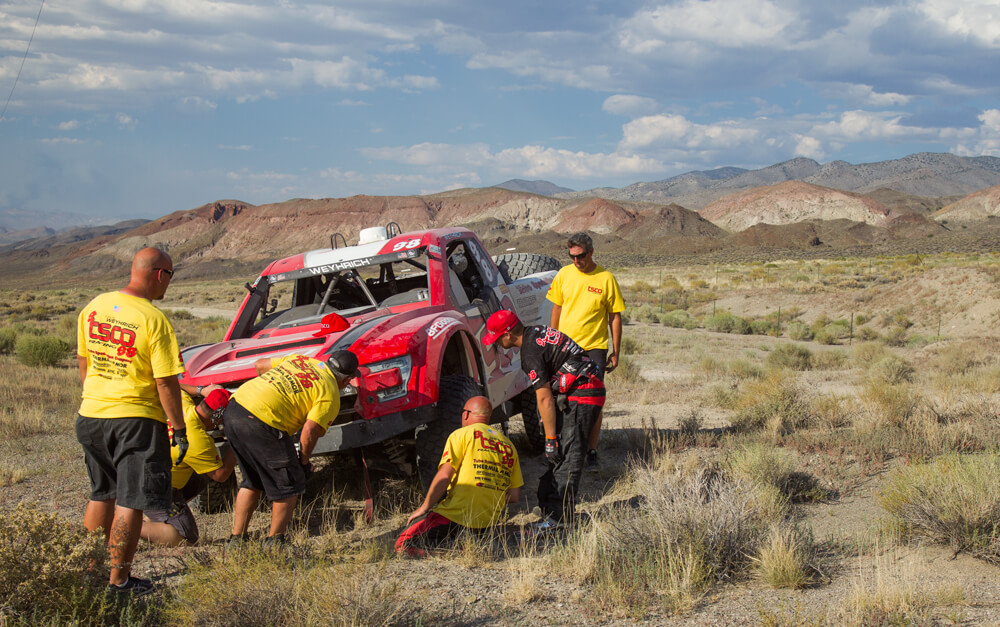
It’s not by chance we have a great team because we try to take care of the guys that take care of us. That means putting them up in the good hotels and giving them swag. That’s really what they’re there for. That’s number one. When you want to have a successful team like this, you’ve got to have the support around you and you have to surround yourself with the guys that are willing to jump in the fire for you. I look at it like how loyal your friends are. Who would you want to walk into a biker bar and get in a fight with? Which one of your friends do you want at your back? Well, I can honestly say that I’d walk into that bar with any one of these guys on our team and not think that we wouldn’t walk out of there. That’s number one.
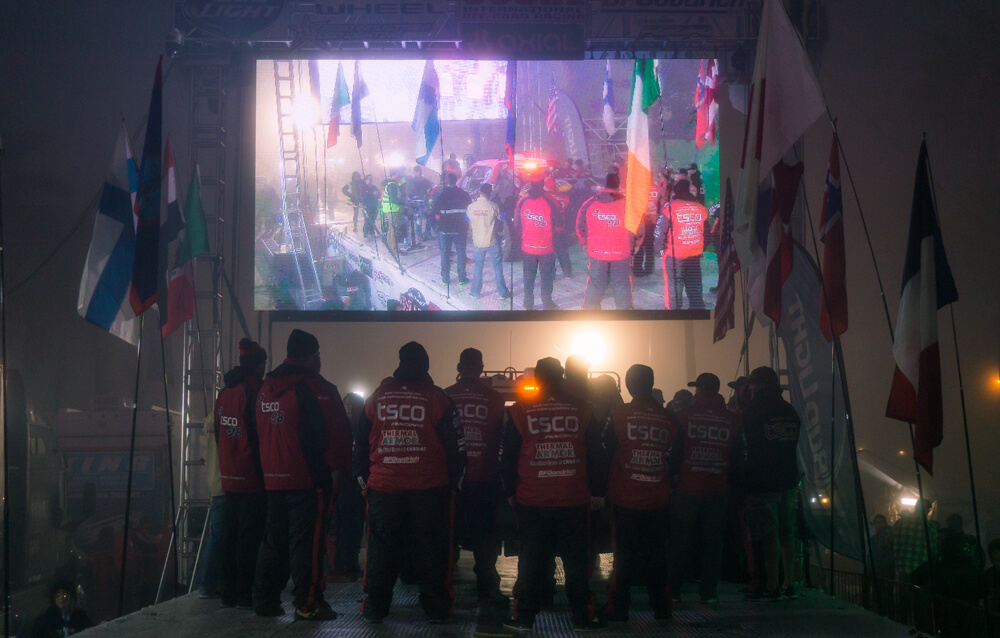
The second thing is the equipment and safety features that you have. They all have to be thought about all the time. I think a lot of teams lose touch with what’s really important out there. All this stuff needs maintenance all the time. After every race, we go through and we maintain. It ends up a very expensive process, but it’s what keeps the guys that are volunteering safe. I don’t ever want to have to call a spouse or a child of one of our volunteers and tell them that their dad’s in the hospital because he was burned because we didn’t want to maintain our equipment. You have to take care of the people that take care of you. It starts at the top with Mark and Gary. They gave me the full reign. They said, “You do what you feel necessary to make sure these guys are safe and make sure that they are going to go to bat for us and keep us safe.” That’s what we’ve got to do.

